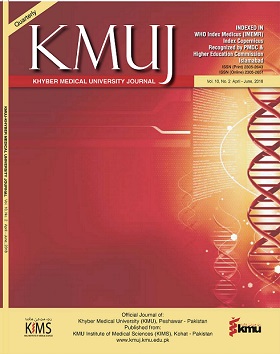THOUGHTS ABOUT THE MENTEE-MENTOR RELATIONSHIP IN MEDICAL EDUCATION
Main Article Content
Abstract
“A mentor is someone who can answer questions and give advice”1. This definition is a useful starting point, but, is the not the relationship between the Mentor and the Mentee something much more special? The Mentee may have questions that are life-centred, highly personal, specific, and part of a context that cannot be learned from formal teaching in classes or groups. The Mentor is someone who is known to the Mentee, who istrusted, respected and valued. Someone who embraces the role of loco parentis – in effect a “professional parent” providing nurturing guidanceto their emerging “professional child”, and can address the issues that arise in the life of the Mentee. Therefore, it is necessary to acknowledge a special element of “cognitive intimacy” within the relationship that can only exist if the matching of Mentor and Mentee is a good fit. Thus, some searching questions are raised, for example, how men can excel as mentors to women?2, and is the pairing really a “one-size fits all” arrangement?3
In his book4, Schön explores how professionals think in action. Acquiring both reflective and constructive thinking skills are essential objectives for a medical undergraduate. However, constructing a robust framework for thinking in a reflective and constructive way may be a significant challenge for someone who is facing an issue for the first time, particularly when the issue may be a critical event in an individual’s personal or professional life.5 This is precisely the time when an individual turns to the guidance of their Mentor. It is the moment when the Mentee calls on the experience and intellectual merits of their Mentor. Such moments are usually unforeseen, frequently spontaneous rather than planned, and are part of the phenomenology of life.6 This sets the Mentee–Mentor relationship apart from the more commonly understood roles of Tutor-Tutee, Teacher-Student or Clinical supervisor-Trainee. They are set apart simply because the situation is not part of the formal curriculum, and cannot easily be timetabled or routinely scheduled. This association with the hidden curriculum means that an understanding of the complex nature and benefits of a Mentor-Mentee programme is not immediately obvious.7 However, it is generally recognised that medical schools that support Mentees, through training Mentors8 and promoting the relationship, develop a stronger community of professional practitioners.9
Article Details
Work published in KMUJ is licensed under a
Creative Commons Attribution 4.0 License
Authors are permitted and encouraged to post their work online (e.g., in institutional repositories or on their website) prior to and during the submission process, as it can lead to productive exchanges, as well as earlier and greater citation of published work.
(e.g., in institutional repositories or on their website) prior to and during the submission process, as it can lead to productive exchanges, as well as earlier and greater citation of published work.
References
REFERENCES
Stenfors-Hayes T, Hult H, Dahlgren LO. What does it mean to be a mentor in medical education? Med Teach 2011;33(8):e423-8. DOI: 10.3109/0142159X.2011.586746
Bickel J. How Men Can Excel as Mentors of Women. Acad Med 2014 Aug;89(8):1100–2. DOI:10.1097/ACM.0000000000000313
Beech BM, Calles-Escandon J, Hairston KG, Langdon SE, Latham-Sadler BA, Bell RA. Mentoring Programs for Underrepresented Minority Faculty in Academic Medical Centers: A Systematic Review of the Literature Acad Med. 2013 Apr;88(4):541–9.DOI:10.1097/ACM.0b013e31828589e3.
Schön DA. The reflective practitioner: How professionals think in action. 1st Edition. London. Routledge; 1992.
Brigitte Vachon, Jeannette LeBlanc. Effectiveness of past and current critical incident analysis on reflective learning and practice change. Med Educ 2011 Sep; 45(9): 894–904. DOI:10.1111/j.1365-2923.2011.04042.x.
Hyppolite J. Genesis and structure of Hegel's" Phenomenology of spirit". USA. Northwestern University Press; 1979.
Donovan A, Donovan J.Mentorship in postgraduate training programmes: views of Canadian programme directors. Med Educ 2009 Feb:43(2):155–8. DOI:10.1111/j.1365-2923.2008.03258.x
Neighbour R. The inner apprentice: An awareness-centred approach to vocational training for general practice. CRC Press; 2018 Feb 6.
Frei E, Stamm M, Buddeberg-Fischer B. Mentoring programs for medical students-a review of the PubMed literature 2000-2008. BMC Medical Educ 2010 Apr 30;10(1):32. DOI: 10.1186/1472-6920-10-32.
